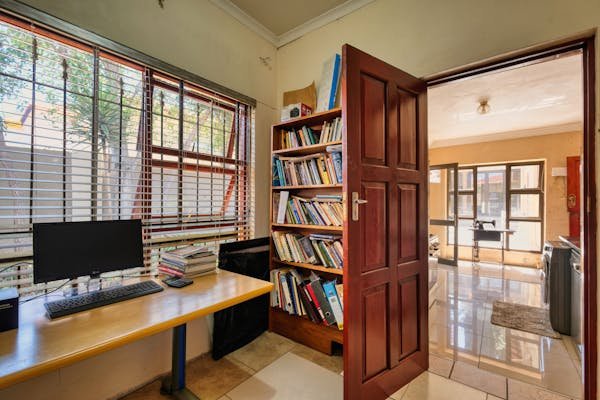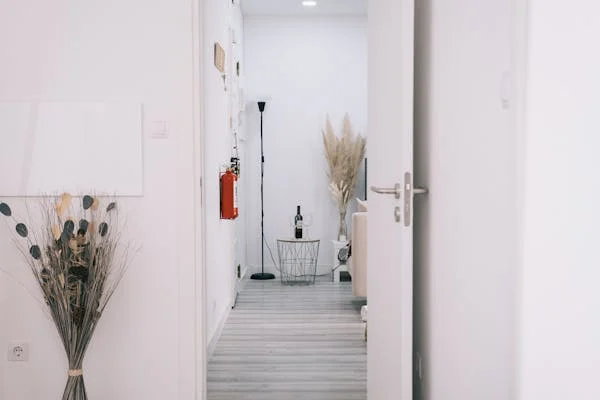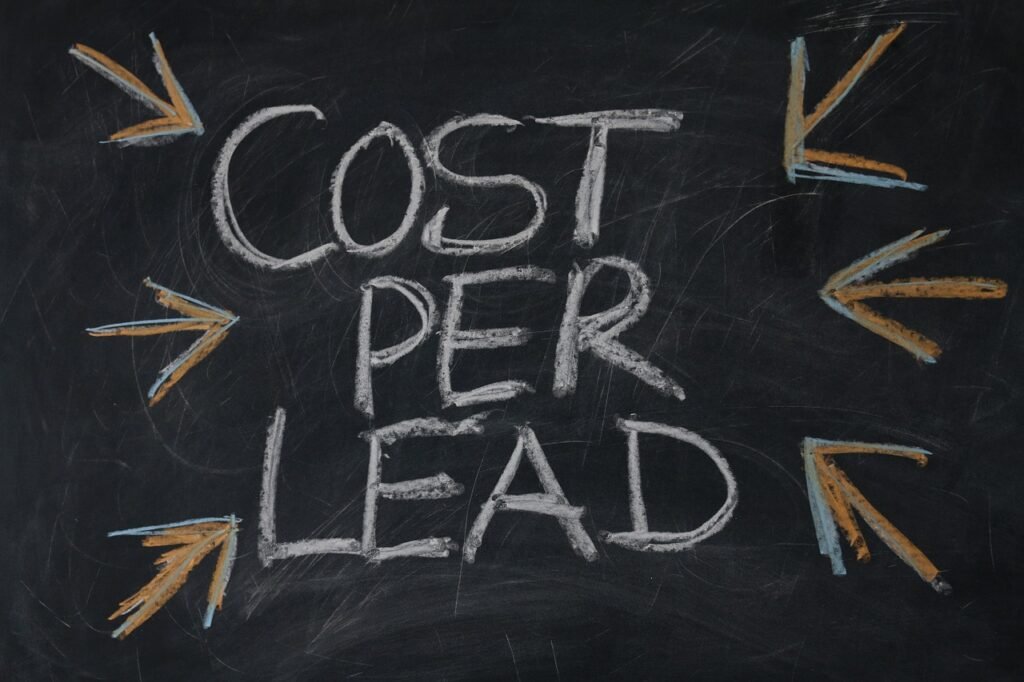Hosting an open house is a fantastic way to showcase a property and attract potential buyers. However, to make your open house stand out, you need to employ creative marketing strategies that capture attention and draw in a crowd. In this guide, we’ll explore a variety of innovative ideas to make your open house a memorable event that generates buzz and leads.
Pre-Event Marketing
Utilizing Social Media
Social media is a powerful tool for promoting your open house. Start by creating an event on Facebook and invite your followers. Use eye-catching visuals and engaging descriptions to highlight the property’s best features. Share regular updates and behind-the-scenes content to build excitement.
For example, post a countdown to the open house, share sneak peeks of the property, and use stories on Instagram and Facebook to give a live look at the preparations. Use relevant hashtags to increase visibility and encourage your followers to share the event with their networks.
Email Campaigns
Email marketing is an effective way to reach potential buyers who are already in your contact list. Craft a compelling email campaign that highlights the key features of the property, the benefits of attending the open house, and any special activities or incentives you’ll offer.
For instance, send a series of emails leading up to the event, starting with an invitation that includes high-quality photos and a virtual tour of the property. Follow up with reminders as the event approaches, and include a personal touch by addressing recipients by name and tailoring the content to their preferences.
Partnering with Local Businesses
Partnering with local businesses can help you reach a wider audience and add value to your open house. Collaborate with local cafes, bakeries, or restaurants to provide refreshments for your guests. This not only enhances the experience but also encourages local businesses to promote your event to their customers.
For example, you could offer a complimentary coffee and pastry from a popular local café to the first 50 attendees. Promote this partnership on social media and in your email campaigns to attract more visitors.
Leveraging Video Marketing
Video marketing is an engaging way to showcase the property and create excitement for the open house. Create a series of short videos that highlight different aspects of the property, such as the kitchen, living room, backyard, and neighborhood amenities.
Share these videos on social media, your website, and in your email campaigns. Consider going live on Facebook or Instagram a few days before the event to give a real-time tour of the property and answer any questions from potential buyers.
Engaging with Online Real Estate Platforms
List your open house on popular real estate platforms like Zillow, Realtor.com, and Redfin. These platforms have a large audience of active homebuyers and can significantly increase your event’s visibility.
Make sure your listing is detailed and includes high-quality photos, a virtual tour, and all relevant information about the open house. Highlight any special features or incentives to attract more attention.
Enhancing the Open House Experience

Creating a Welcoming Atmosphere
First impressions are crucial, so create a welcoming atmosphere right from the entrance. Use attractive signage and balloons to guide guests to the property. Consider having a friendly greeter at the door to welcome attendees, provide them with a brochure, and answer any immediate questions.
Inside, ensure the house is clean, well-lit, and inviting. Play soft background music to create a pleasant ambiance. If the property has a fireplace, have it lit (if seasonally appropriate) to add to the cozy feeling. Fresh flowers and scented candles can also enhance the homey atmosphere.
Hosting Interactive Tours
Instead of a traditional walk-through, offer interactive tours that engage your visitors. Use a mix of self-guided and agent-led tours to cater to different preferences. Provide a printed or digital map highlighting key features and suggest a route that showcases the property’s best aspects.
For instance, set up QR codes around the house that visitors can scan with their phones to learn more about specific features or see additional photos and videos. This adds an element of fun and tech-savvy engagement to the tour.
Showcasing the Neighborhood
Potential buyers are often just as interested in the neighborhood as they are in the property itself. Create a neighborhood guide that includes information on local schools, parks, restaurants, and amenities. Highlight the community’s strengths and what makes it a great place to live.
Offer guided neighborhood tours during the open house, either by walking or using a shuttle service. Show off local attractions, nearby parks, and the general atmosphere of the community. This gives visitors a comprehensive view of the lifestyle they can expect if they purchase the home.
Providing Refreshments
Offering refreshments can make visitors feel more at home and encourage them to stay longer. Partner with local businesses to provide snacks and beverages, or set up a simple refreshment station with coffee, tea, water, and light snacks.
For example, you could offer a selection of pastries from a local bakery or a tasting of wines from a nearby vineyard. This not only creates a pleasant experience but also gives local businesses a chance to promote themselves.
Incorporating Virtual Reality
Virtual reality (VR) can provide an immersive experience for your visitors. Set up a VR station where attendees can explore the property in a fully interactive 3D environment. This is especially useful for highlighting aspects of the property that might not be immediately visible, such as the layout of the home or potential renovation ideas.
Provide VR headsets and guide visitors through the virtual tour, explaining different features and benefits as they explore. This innovative approach can make your open house memorable and set it apart from others.
Engaging with Attendees
Collecting Contact Information
Collecting contact information from attendees is crucial for follow-up. Set up a registration table where visitors can sign in, providing their names, email addresses, and phone numbers. Offer a small incentive, such as a chance to win a gift card, to encourage sign-ups.
For example, use a tablet or laptop to streamline the process and ensure you collect accurate information. You can also provide a QR code for attendees to scan, leading them to an online registration form. This information will be invaluable for follow-up communications and building your contact database.
Hosting Informational Sessions
Host short informational sessions during the open house to provide valuable insights into the property buying process, financing options, and the local real estate market. Invite local experts, such as mortgage brokers or home inspectors, to give presentations and answer questions.
For instance, schedule a 15-minute session on “Tips for First-Time Homebuyers” or “Understanding the Mortgage Process.” These sessions can be scheduled at regular intervals throughout the event, giving visitors the flexibility to attend at their convenience.
Offering Personalized Follow-Ups
After the open house, follow up with attendees promptly. Send personalized emails thanking them for attending and providing additional information about the property. Include a survey to gather feedback on their experience and gauge their interest level.
For example, if a visitor expressed particular interest in the backyard, send additional photos or videos highlighting the outdoor space. Personalized follow-ups show that you value their interest and are attentive to their needs, which can help build stronger relationships and increase the likelihood of a sale.
Utilizing Social Media for Engagement
Continue to engage with attendees through social media even after the event. Share photos and videos from the open house, highlighting key moments and the turnout. Encourage attendees to share their own photos and tag your real estate page.
Create a dedicated hashtag for your open house and encourage visitors to use it when posting about the event. This can help create a sense of community and keep the conversation going, while also increasing your visibility on social media platforms.
Post-Event Marketing
Sending Thank-You Notes
Sending thank-you notes is a simple yet powerful way to show appreciation and keep your property top of mind. Send personalized thank-you emails or handwritten notes to everyone who attended the open house.
In your notes, thank the attendees for their time and interest. Highlight one or two key features of the property that they seemed particularly interested in and invite them to reach out if they have any further questions. Personal touches like these can make a big difference in how potential buyers perceive you and the property.
Creating a Follow-Up Content Strategy
A robust follow-up content strategy can help keep potential buyers engaged and interested in the property. Develop a series of follow-up emails that provide valuable information and keep the conversation going.
For instance, send a follow-up email with a virtual tour of the property for those who may want to revisit it from the comfort of their home. Follow up with emails about local market trends, new listings in the area, and any updates or price changes to the property. Keeping potential buyers informed and engaged helps build trust and keeps your property top of mind.
Leveraging Testimonials and Reviews
If you receive positive feedback during the open house, ask attendees if they would be willing to provide a testimonial or review. Share these testimonials on your website, social media, and in your marketing materials.
For example, create a short video featuring clips of attendees talking about what they liked most about the property. Written testimonials can be included in follow-up emails and on the property’s listing page. Genuine reviews from real people can significantly enhance your credibility and attract more potential buyers.
Hosting a Virtual Open House Recap
For those who couldn’t attend the open house in person, hosting a virtual recap can be a great way to reach a broader audience. Use video clips and photos from the event to create a virtual tour or highlight reel.
For example, host a live virtual event where you walk through the property, discuss its features, and answer questions from online attendees. Promote this virtual recap on your social media channels and through your email list to attract viewers who may have missed the in-person event.
Utilizing Retargeting Ads
Retargeting ads can help you reach people who visited your property’s listing or attended the open house but haven’t yet taken the next step. Use Facebook and Google retargeting ads to keep your property in front of these potential buyers as they browse the web.
For example, create ads that highlight the key features of the property and include a call to action, such as scheduling a private tour or contacting you for more information. Retargeting helps keep your property top of mind and encourages potential buyers to take the next step.
Creating Engaging Blog Content
Writing blog posts about the open house and the property can drive additional traffic to your website and keep potential buyers engaged. Create content that provides valuable insights and highlights the unique aspects of the property.
For example, write a blog post titled “Top 5 Features of Our Recent Open House Property” or “What You Missed at Our Open House.” Share these posts on your social media channels and include them in your follow-up emails to provide additional information and keep the property in the spotlight.
Offering Special Incentives
Offering special incentives can encourage potential buyers to take action. Consider providing limited-time offers or bonuses to attendees who show strong interest in the property.
For example, offer a discount on closing costs, a home warranty, or include certain appliances or furnishings with the purchase. Highlight these incentives in your follow-up communications to create a sense of urgency and motivate potential buyers to move forward.
Engaging in Community Outreach
Engage with the local community to build relationships and increase the visibility of your property. Sponsor local events, participate in community activities, and collaborate with local businesses.
For instance, sponsor a local charity run or participate in a community fair. Use these opportunities to promote the property and connect with potential buyers in a more casual and relaxed setting. Community involvement can enhance your reputation and create additional marketing opportunities.

Analyzing and Improving Your Strategy
After the open house, take the time to analyze what worked well and what could be improved. Gather feedback from attendees and your team to identify areas for improvement.
For example, review attendance numbers, engagement levels, and feedback from follow-up communications. Use this information to refine your approach for future open houses, ensuring that each event is more successful than the last.
Creating a Long-Term Relationship Strategy
Building long-term relationships with potential buyers is crucial for sustained success. Stay in touch with attendees and provide ongoing value through regular communications.
For example, send monthly newsletters with market updates, new listings, and tips for home buyers. Invite them to future open houses and community events. By nurturing these relationships, you increase the likelihood of turning attendees into clients, even if they don’t buy the initial property they visited.
Creating Engaging Pre-Event Content
Leveraging Influencer Partnerships
Partnering with local influencers can amplify your open house marketing efforts. Influencers have loyal followings and can help spread the word about your event to a wider audience.
For example, collaborate with a popular local real estate influencer or lifestyle blogger to create content about the property. Have them attend a sneak peek of the open house and share their experience through blog posts, social media updates, and videos. This partnership can generate excitement and attract more attendees.
Utilizing Email Drip Campaigns
An email drip campaign can keep potential buyers engaged and informed about the upcoming open house. Plan a series of emails that gradually reveal more details about the property and the event.
Start with a teaser email that piques interest with a few high-quality images and an invitation to the open house. Follow up with emails that highlight specific features of the property, share testimonials from previous buyers, and provide practical information like the event schedule and parking details. This drip campaign builds anticipation and keeps the property top of mind.
Creating Interactive Polls and Quizzes
Interactive content like polls and quizzes can engage your audience and provide valuable insights into their preferences. Create a fun quiz related to the home buying process or a poll asking followers what they are most interested in seeing at the open house.
For example, create a quiz titled “What Type of Homebuyer Are You?” and share it on social media and in your email campaigns. Not only does this provide entertainment, but it also gathers data on your audience’s preferences, which you can use to tailor your marketing strategies.
Hosting a Pre-Event Live Stream
A live stream before the event can build excitement and give potential attendees a taste of what to expect. Use platforms like Facebook Live or Instagram Live to host a pre-event session where you give a brief tour of the property, introduce the real estate team, and answer any questions from the audience.
For instance, schedule a live stream a week before the open house and promote it through your social media channels and email list. During the live stream, walk through the property, highlighting key features and engaging with viewers in real time. This creates a sense of urgency and encourages viewers to attend the open house.
Enhancing Event Day Activities
Offering Themed Experiences
Create a themed experience for your open house to make it more memorable and enjoyable. Themes can be based on the property’s style, location, or a seasonal event.
For example, if the property has a rustic charm, host a “Country Living” themed open house with country music, rustic decor, and homemade pies. If it’s near a beach, create a “Beach Day” theme with tropical drinks, beach balls, and surf music. Themes make the event fun and can attract a specific type of buyer who appreciates the unique ambiance.
Engaging with Local Artists
Incorporating local art into your open house can enhance the aesthetic appeal of the property and attract art enthusiasts. Partner with local artists to display their work throughout the home, creating a mini art gallery experience.
For example, feature paintings, sculptures, or photography from local artists in each room. Promote this collaboration through social media and local art community channels. This not only supports local talent but also provides a unique and culturally rich experience for attendees.
Hosting Mini-Workshops or Demonstrations
Mini-workshops or demonstrations can add educational value to your open house and keep attendees engaged. Offer short sessions on relevant topics such as home staging tips, interior design trends, or gardening.
For instance, invite a local interior designer to give a 15-minute workshop on the latest home decor trends or have a gardening expert show how to create a beautiful backyard oasis. These sessions provide added value and position your open house as more than just a property viewing.
Creating a Kid-Friendly Area
A kid-friendly area can make the open house more enjoyable for families with children. Set up a designated space with activities and entertainment for kids, allowing parents to explore the property without distractions.
For example, hire a local babysitter or entertainer to supervise the kids’ area, which can include coloring books, toys, and games. Provide snacks and drinks to keep the children happy and engaged. This thoughtful touch shows that you understand the needs of families and can make a significant positive impression.
Leveraging Post-Event Strategies

Sharing Event Highlights
After the open house, share highlights from the event on your website, social media channels, and email newsletters. This keeps the momentum going and showcases the success of the event.
For example, create a photo gallery or a short video recap of the event, featuring happy attendees, key moments, and the property’s highlights. Share these visuals with your followers and encourage attendees to tag themselves and share their own photos. This post-event content can attract additional interest and inquiries.
Creating Follow-Up Videos
Follow-up videos can provide additional insights into the property and address any questions or concerns potential buyers might have. Create short, informative videos that delve deeper into specific features or aspects of the property.
For instance, produce a video that focuses on the property’s kitchen, detailing its appliances, design, and functionality. Share these videos through email follow-ups and social media to keep potential buyers engaged and interested.
Offering Personalized Tours
For attendees who showed strong interest during the open house, offer personalized tours as a follow-up. Reach out to them directly and invite them to schedule a private viewing at their convenience.
For example, send a personalized email or make a phone call to offer a one-on-one tour with more detailed information about the property. This personal attention can make a significant difference in converting interested attendees into serious buyers.
Analyzing Event Data
Analyzing data from the open house can provide valuable insights for future events. Look at metrics such as attendance numbers, engagement levels, and feedback from attendees to understand what worked well and what could be improved.
For instance, use CRM tools to track follow-up interactions and conversion rates. Conduct a debrief with your team to discuss observations and gather suggestions for future improvements. This continuous improvement approach ensures that each open house becomes more effective and successful.
Building Long-Term Relationships
Finally, focus on building long-term relationships with potential buyers, even if they don’t purchase the initial property. Keep them engaged with regular updates, market insights, and invitations to future events.
For example, send monthly newsletters with useful home-buying tips, new listings, and local market trends. Personalize these communications to make recipients feel valued and connected. Building these relationships can lead to future sales and referrals, ensuring long-term success.
Conclusion
Utilize social media and email campaigns to build anticipation and reach a broad audience. Engage local businesses and influencers to expand your reach and add value to the event. Use high-quality visuals, video marketing, and interactive tools to make the property stand out.
On the day of the event, create a welcoming atmosphere with thoughtful touches like refreshments, themed experiences, and interactive tours. Showcase the neighborhood, provide valuable information sessions, and engage attendees with unique activities.
Read Next:
- Account Based Marketing (ABM) Statistics: Insights for 2024
- Proven Marketing Ideas to Boost Restaurant Sales
- Gratitude-Focused Marketing Ideas for Real Estate
- Effective Marketing Ideas for Small Businesses
- Create Memorable Gift Bags for Your Marketing Campaign






















Comments are closed.